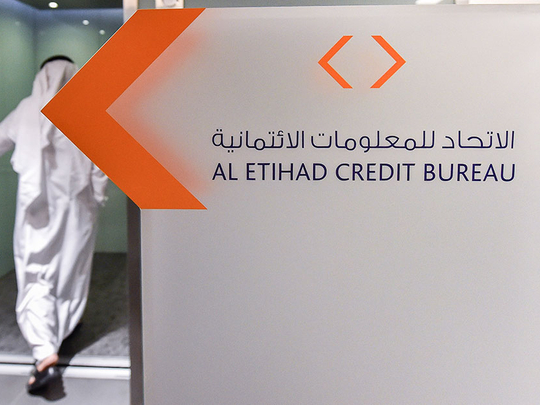
Abu Dhabi: Al Etihad Credit Bureau (AECB) is expected to launch an online service before the end of this year to enable consumers to purchase their credit reports online and have the reports delivered by mail, according to Marwan Lutfi, the Bureau’s chief executive officer.
Currently, individuals can visit the Bureau’s offices (on Al Falah Street in Abu Dhabi, and Shaikh Zayed Road in Dubai) to obtain their credit reports.
In an interview with Gulf News, Lutfi said that the online service is part of the Bureau’s plans to raise residents’ awareness on the importance of checking their credit reports.
The service will require the input of an Emirates ID number, personal details, and a payment of Dh70 (for a summarised report) or Dh110 (for a detailed report).
“Our intention is to reach out to individuals to be more proactive. It’s important for individuals to pay attention to their debt obligations, their outstandings, and how they manage their finances going forward. [There should be more proactivity in that] individuals should be able to understand their credit [status] report, and buy their report,” Lutfi said.
Over 95 per cent of banks in the UAE are now using reports from the Credit Bureau, with banks showing an increase in their use of it over time.
“What the banks have accepted is that [the credit reports are] a new source of information in business and I think the more information they get, the better is the decision-making process,” he said.
The Bureau is also expected to launch credit scores next year for individuals in order to rate their credit data.
How will this impact individuals?
1) Loan applications: Lutfi said that some banks have already started using credit data for loan applications and loan pricing, making the process much quicker.
“What we are hoping for is full integration. Right now, we are electronically integrated with databases in banks, so we get monthly updates.
Hopefully, by next year, the [loan] process will be instant by banks, so you won’t have to apply, then send paperwork, then wait for a committee to take a look at this and that. It would be great if [customers] go to a teller, ask for the service they want, provide their Emirates ID, [the teller] plugs it in, the system reads off our database, and automatically shoots out [approval or refusal],” he said.
2) Tenancy contracts: Real estate developers and landlords are also expected to use credit data to assess tenant applications and their ability to honour their payments. This would help reduce the need for advance payments, Lutfi said.
“What we are hoping for is by using the credit data and understanding tenants before they sign a lease, you know how committed they are to their financial obligations. If I [as an individual] have a good credit history, I would like to be able to go to my landlord and say, ‘I have a great track record, I want to make my payments on a monthly basis’.
“That’s where we want to transfer the benefit to individuals where if they make their payments on time, they can negotiate better terms for themselves,” the CEO said.
3) Streamlining credit cards and cheques: Aside from making payments on time, individuals can improve their credit score by minimising their credit cards, which consume their pipeline even if the cards are not being used. Individuals can also ensure their cheques don’t bounce, as this would be recorded on their credit report and, hence, impact their score.
“A credit card facility is more expensive that any loan facility whether it’s an auto loan or a personal loan. If I’m not going to use that pipeline, I might as well reduce it so that when I’m in the market applying for a loan, I can get more favourable rates,” Lutfi said.
He added that international markets have already seen a drop in the number of credit cards owned by each individual – a phenomenon that is expected to happen in the UAE over the next few years as the Credit Bureau becomes more integrated.
Similarly, one GCC country reported a 70 per cent decline in reports of bounced cheques a year after a credit bureau was introduced.
Regional Cooperation
AECB is currently in discussions with other credit bureaus in the GCC about having a regional database to allow for the transfer of credit data across borders. A committee has already been formed to look into the issue, and Lutfi said that AECB was “at an advanced stage of technical discussions”.
However, once technical issues are resolved, the committee will still need to examine more angles, including a legal framework.
“There’s been interest from a lot of international credit bureaus [outside the GCC]. Given the expat community in the UAE, I think it’s something we’re willing to consider. We haven’t yet started [talks] but there has been interest from other credit bureaus to see how we can exchange information,” Lutfi said.












